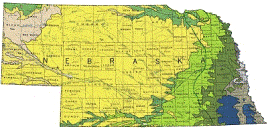United States Geological Survey

United States Geological Survey: Staff Publications
Document Type
Article
Date of this Version
2014
Citation
Hydrol. Process. 28, 3681–3690 (2014)
Abstract
The aim of this work is to study the effects of a wildfire on water-extractable elements in ash from a Pinus pinaster forest located in Portugal. The pH, electrical conductivity (EC), calcium (Ca2+), magnesium (Mg2+), sodium (Na+), potassium (K+), sodium and potassium adsorption ratio (SPAR), aluminium (Al3+), manganese (Mn2+), iron (Fe2+), zinc (Zn2+), sulphur (S), silica (Si) and phosphorous (P) were analysed in ash sampled from a sloped area burned in a wildfire and from litter from a contiguous unburned area, with similar morphological conditions. The results showed that ash leachates had higher pH and EC, and were significantly richer in water-extractable Ca2+, Mg2+, Na+, K+, SPAR, S and Si and significantly poorer in water-extractable Al3+, Fe2+, Mn2+ and Zn2+ than litter solutions. No significant differences were observed in water-extractable P. The fire changed the ash solute chemistry compared with the unburned litter and increased the sample variability of nutrient distribution with potential implications for plant recovery.


Comments
This article is a U.S. government work, and is not subject to copyright in the United States.